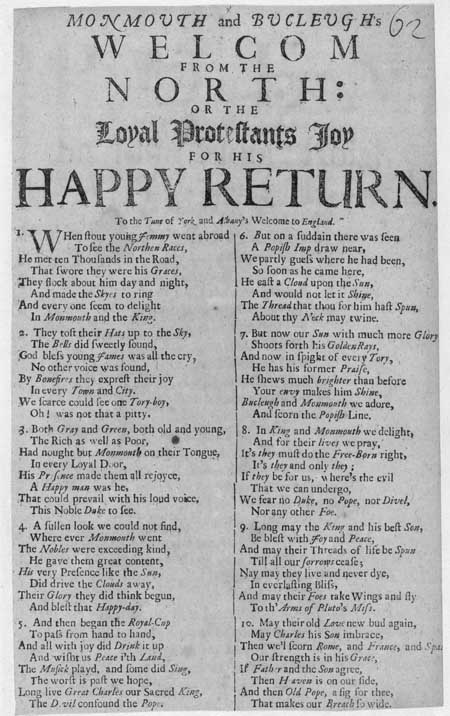Commentary
This ballad begins: 'When stout young Jemmy went abroad / To fee the Northen Races / He met ten Thousands in the Road, / That swore they were his Graces.' A note below the title states that this ballad should be sung to the tune of 'York and Albany's Welcome to England', this being a reference to James the Duke of York, brother of King Charles II. This ballad celebrates the religion and virtues of the Duke of Monmouth (1649-1685), and the Duke of Buccleuch. Probably written in 1679, around the time of the Battle of Bothwell Bridge, this ballad compares Monmouth to Jesus Christ and his father, Charles II, to God. This ballad should ideally be viewed in the context of the bloody events that led up to the Glorious Revolution of 1688. Monmouth was beheaded at Tower Hill, London, following the defeat of his army at Sedgemoor in 1685. The National Library of Scotland's collection contains a number of broadsides that report on the actions of the Duke of Monmouth. Early ballads were dramatic or humorous narrative songs derived from folk culture that predated printing. Originally perpetuated by word of mouth, many ballads survive because they were recorded on broadsides. Musical notation was rarely printed, as tunes were usually established favourites. The term 'ballad' eventually applied more broadly to any kind of topical or popular verse.
View Transcription | Download PDF Facsimile
|
 |
Probable date published:
1679 shelfmark: Ry.III.a.10(035)
 View larger image
View larger image
|


